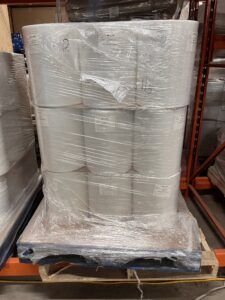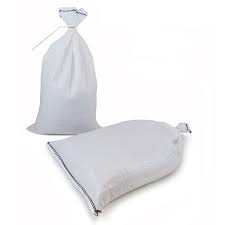Highlights
- It’s so easy to toss every trash into the garbage bags, but some items have no place there. Items such as batteries, electronics and appliances, paints, oil and gas products, and light bulbs shouldn’t go into a garbage bag.
- Wondering how often you should change your garbage bags? It really depends on a few factors, like the size of your trash can, the type of waste, how often your trash gets collected, and your personal preferences.
7 Things That Shouldn’t Go Into a Garbage Bag
Before you toss your used batteries, syringes, needles, motor oil, and even paints into your garbage bag, hold up. Do you know some items do not belong in a garbage bag as they contain hazardous materials that can cause health risks if not properly disposed of?
There are common items that shouldn’t end up in a garbage bag. Wondering what these items might be? Let’s jump right in.
Batteries
Batteries, including car, alkaline, lithium, and rechargeable ones, shouldn’t go into your garbage bags. Do you know why? Batteries contain chemicals that can be hazardous in a landfill.
All battery types can leak harmful substances into the soil and water. So, instead of tossing them into your garbage bags, find recycling programs for them.
Electronics and Appliances
You may be tempted to throw your used electronics, such as your old phones, TVs, laptops, and DVD players, into your garbage bag. But they don’t belong there.
The same applies to appliances like toaster ovens, refrigerators, and microwaves. They contain electronic components that can become dangerous if not disposed of properly. So, utilize recycling programs in your municipality to dispose of them.
Paints
Leftover paints are another common item you may want to throw in your garbage bags. Please don’t! This can be extremely dangerous because it emits harmful chemicals into the air.
Also, paint thinner, oil-based paint, lead-based paint, and other similar products can seep into the soil and affect plants, plus people and animals who consume those plants.
If you have any leftover paint, you can donate it to charity organizations that may need it for housing projects. Many municipalities also have paint disposal programs for individuals with leftover paint. You can also check this out.
Oil and Gas
Oil and gas products like kerosene, motor oil, lubricants, paraffin oil, gasoline, and petroleum are items you shouldn’t toss into your garbage bags. Why? They are corrosive, flammable, and toxic.
So, how do you dispose of them? Many towns and cities have drop-off programs for this kind of waste. Check with your municipality for upcoming events where you can safely dispose of them.
Light Bulbs
There are light bulbs you shouldn’t throw into your garbage bags. Fluorescent light bulbs and Compact Fluorescent Lights (CFLs) contain mercury, which, if they end up in a landfill, can contaminate the soil and water. To properly dispose of them, check for your local recycling options.
Prescription Drugs
Prescription drugs, when not disposed of properly, can end up in the water supply or soil. This can result in serious harm to the environment and can impact public health.
Children or even pets can pick up discarded drugs, which can lead to accidental ingestion. Other people can also find these drugs when disposed of in a garbage bag and misuse them.
A better way to dispose of these drugs is through the disposal service provided by the council. You can also return them to a pharmacy.
None Empty Aerosol Cans
You should avoid throwing cans that are used for spraying solvents, pesticides, paints, or food products. According to the Environmental Protection Agency (EPA), aerosol cans shouldn’t be disposed of in a garbage bag unless they are empty.
They are considered hazardous waste and may explode if not empty. Therefore, before tossing them into your garbage bag, ensure they are empty. Otherwise, check out recycling options for this type of waste within your municipality.
How Often Should You Change Your Garbage Bag?
How often you change your garbage bags depends on factors like the size of your trash can, waste type, collection frequency, and personal preferences. For bathroom trash, you can change the garbage bags once a week. However, this could change based on your personal preferences and the kind of garbage collection services in place.
In offices or smaller bins found in bedrooms, you can go for weekly or bi-weekly changes. This could also change depending on waste volume and the type of trash collection services being used. As for your kitchen trash, you should change the bags every 2-3 days to control odors and maintain a clean environment.
What about large outdoor bins? For residential use, change the bags every 1-2 weeks. Regular disposal in commercial or industrial settings often requires dumpster rental services.
You should change the bags in your recycling bins on the same schedule as your regular waste bins. This way, everything gets sorted properly, and recyclables don’t get mixed up with other waste. When it comes to compost bins, it is ideal to change the bags every 3-4 days to help with odor control and the composting process.
Remember, regularly changing your garbage bags doesn’t just keep unpleasant smells at bay. It also keeps your surroundings clean and hygienic, whether at home or in a business setting.
St. Boniface Bags Garbage Bags
Looking for a place where you can get garbage bags for any of your specific needs? We have you covered. Our garbage bag options will cater to all your needs. Whether you are looking for garbage bags for home or industrial use, we are your go-to place. Contact us now to place your order.
FAQs
Are garbage bags recyclable?
Yes – garbage bags are recyclable, but how you use and dispose of them can make it hard. For instance, when contaminated with food scraps and other waste, they become unsuitable for the recycling stream. So, ensuring these bags are clean and dry can help the recycling work.
How do I properly dispose of garbage gags?
Separate recyclables and compost organic waste if you have any. Ensure your garbage bags are securely tied and placed in the designated trash bin or dumpster. Check your local waste management guidelines for any specific disposal rules and dispose of your hazardous waste properly.
Is there a difference between garbage bags, can liners, and trash bags?
These three are used in referring to the same product. While a homeowner may refer to it as “garbage or trash bag,” in industrial settings, they are known as “can liners.”
Are you wondering about things you shouldn’t dispose of in a garbage bag? This article provides you with a list of common items that do not belong in a garbage bag.




